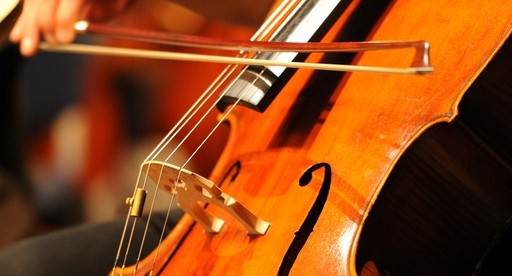How to Fly with a Cello

If you ask a musician about flying with their instruments, what you’ll invariably hear is how bad of an idea it is to check their instrument-carrying luggage. Lost baggage, a relative lack of climate control, a less-than-gentle inspection process, and the often haphazard way bags are handled when loaded and unloaded from the airplane are common concerns. So whenever possible, musicians of all levels try to keep their instruments with them for the duration of their travels.In the case of smaller instruments, that’s not too hard — flutes, violins, and even trumpets will often fit in the permitted dimensions for a carry-on item. Due in part to a viral YouTube video from 2009 which documented United Airlines’ damage to a $3,500 guitar, the U.S. government specifically requires airlines to treat most guitars as carry-on items, space permitting. Very large items like harps, forget it — those are getting checked, or, more likely, shipped ahead. It’s also less of an issue for brass instruments like tubas, which are less likely to break when checked.
But what about cellos?
Cellos are a unique problem — they’re too big to be a carry-on but are fragile, so checking them with the rest of the luggage puts the instrument at risk. (Here’s one example resulting in $20,000 in damage.) But while cellos may be big, they’re no bigger than a typical person. So the cellist community has come up with a solution, albeit an expensive one: many cello players buy a ticket for their instrument. You ride in one seat and your cello rides next to you, buckled in just like you are. (Many airlines will even provide a seatbelt extender for the instrument.)
This causes two new problems, though. The first is that when booking a plane ticket, generally speaking, you need to provide the airline with the name of the passenger. That’s often difficult enough when dealing with human passengers (see, for example, the bonus fact below), but it’s worse for cellos, because cellos typically don’t have names (at least not legal ones). The problem is so common that some airlines have specific policies in place to account for this. For example, the website of British low-cost carrier EasyJet instructs cello-carrying customers to “please add an additional seat during the online booking process and use the passenger name MR SEAT CELLO.”
The second problem: who gets the frequent flyer miles? Mr. Seat Cello can’t book his own flight and isn’t a real person, but his (its?) owner is still paying for two tickets. But not all airlines are willing to grant double miles to the cello’s owner. In 2013, the Wall Street Journal reported that cellist Lynn Harrell had been flying on Delta Air Lines for years with a companion ticketed as “Cello Harrell.” Delta warned Mr. Harrell that his cello wasn’t eligible to collect miles on his behalf, but shortly thereafter, he claims, Delta’s ticketing agents offered to set up an account for his instrument anyway. (Delta denies this, and says that if it did happen, it was against corporate policy.) Harrell agreed but was ultimately caught by a Delta audit; as a result, per the WSJ, “Delta wiped out not only Cello Harrell’s SkyMiles account, but also Lynn Harrell’s personal SkyMiles account” and “banned him from its loyalty program.”
But don’t feel too bad for Lynn Harrell — he still had his cello, and it’s a 300-year-old one worth an estimated $5 million. (He was, however, looking to sell it — he found a cello made in 2008 that he liked just as much. It, too, flies next to its owner.)
Bonus Fact: If you’re a fan of 1960s U.S. television, you already know who Adam West is — he played Batman in the campy TV series of the same name. Unfortunately for an English teenager named Adam Armstrong, his girlfriend’s stepfather wasn’t familiar with the actor who played the Caped Crusader. Earlier this year, Armstrong’s stepdad booked a flight for his daughter and Armstrong, but unsure of his potential future son-in-law’s name, checked Facebook. Armstrong, jokingly, listed himself as “Adam West” on the social network, and that’s the name his girlfriend’s stepfather saw — and used when booking the ticket. Switching the name on the ticket would have run Armstrong £220 (about $335), which seemed excessive, so he found another way: he changed his name, legally, to Adam West, matching the name on the ticket. That was free, and the rush passport order only cost him £103, or about $160.
From the Archives: Pudding One Over: How one man ate his way to an incredible amount of free plane tickets.
Take the Quiz: A cello has four strings. Name them.
Related: A beginner’s cello. About $200. Airline tickets sold separately.
